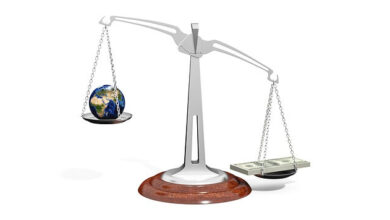Difference Between Centralization And Decentralization(With Table)
Centralization and decentralization are the two types of structures that could be found in the organization, management, government, and even in purchasing activities. All the students might have come across these two terminologies while studying business/commerce and finance. And in this article, we will understand the complete difference between centralization and decentralization. The topics of the blog are as follows.
Our Readers Can Also Read the:
Definition Of Centralization
Centralization refers to the concentration of power and authority at the top level of management. It refers to the organizational structure where the group of top or high-level managerial personnel are actively involved in the planning, decision making, or other activities of the firm. In this type of organization all the rights, authority, and power are in the hand of top-level management. Centralization structure primarily focuses on involving hierarchical structure, when there is insufficient control over the organization.
Advantages Of Centralization
Some of the advantages of centralization are as follows
- Centralization helps an organization strictly enforce uniformity of procedures, policies, and rules.
- It helps to eliminate the overlapping of activities and save money.
- The firm gains a chance to utilize the potential of its employees.
Disadvantages Of Centralization
Some of the disadvantages of centralization are as follows.
- Power and authority lie in a few hands. And thus no participation of employees in decision-making activities results in separation between top-level management(decision-makers) and implementers.
- All the strategy formulation, decision-making, policy-making, and planning are in the hands of top-level management only, which overloads the management and results in creating hotchpotch due to excessive overload.
Definition Of Decentralization
On the other hand, decentralization implies the distribution/assignment of powers and authority at every level of management i.e, from Top-level to middle and low-level management. In such type of organizational structure, the decision-making authority is delegated to the divisional, departmental, unit, or center-level managers across the firm or organization.
Advantages Of Decentralization
Some of the advantages of centralization are as follows.
- It enhances and improves the effectiveness of the managers.
- Enhance the economic development
- Provide a democratic environment where the employees of the company can have a say in their governance.
- It bestows an excellent subjection to middle and low-level managers and creates a pool of promotable workforce with good managerial skills.
Disadvantages Of Decentralization
The disadvantages of decentralization are as follows.
- Decentralization generally increases the problems of coordination among various units of the firm.
- It increases the administrative expenses
- In many cases, decentralization is not possible at all, external factors make this difficult, such as company-wide strikes.
Centralization Vs Decentralization(Comparison Table)
| Basis For Difference | Centralization | Decentralization |
| Definition | It refers to the organizational structure in which decision-making capabilities are delegated to top-level management only. | It refers to the organizational structure in which decision-making capability rests with multiple levels of management. |
| Flow Of Information | Vertical | Open And Free |
| Decision Making | Slow | Faster |
| Authority Of Decision Making | The power of decision-making lies with top-level management only. | Multiple individuals have the authority of decision-making. |
| Implementation | Inadequate control over the organization. | Significant control over the organization. |
| Suited For | It is best suited for small-sized frim | It is best suited for large-sized firms |
Key Difference Between Centralization And Decentralization
The major differences between centralization and decentralization are as follows.
- Centralization refers to the organizational structure where the group of top or high-level managerial personnel are actively involved in the planning, decision-making, or other activities of the firm. On the other hand, decentralization implies the distribution/assignment of powers and authority at every level of management i.e, from Top-level to middle and low-level management.
- While the organization is best for small-size organizations, large-size organizations should practice decentralization.
- The decision-making process in decentralization is faster, while it is slower in centralization.
- In centralization, the decision takes time as the authority and concentration of power lie in the hands of one person. On the other hand, decentralization proves better concerning decision-making because decisions are taken much closer to the actions.
Conclusion
So with the above discussions, we can simply say that both centralization and decentralization deeply affect the political, social, educational, and economic aspects of a country. Some people are in the favour of centralization while some prefer decentralization. In ancient times, people used to run their organizations in a centralized way, But now this concept has been completely changed.




One Comment